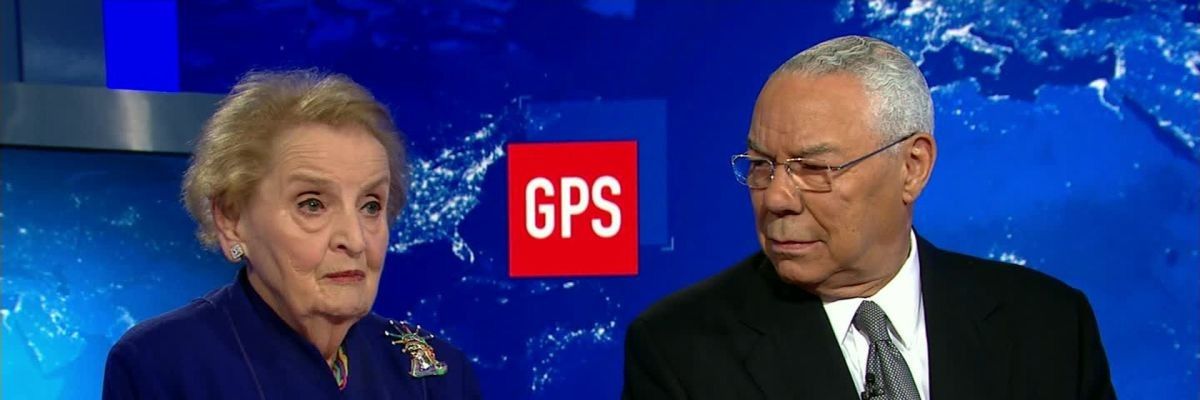The death of former Secretary of State Colin Powell has raised the specter of his role in the U.S. invasion of Iraq — namely, his speech to the UN presenting purported (later revealed to be wrong) evidence of Saddam Hussein’s WMDs, which proved as a pivotal moment in garnering public support for the war.
But Powell, who not only served as chief diplomat, national security adviser, and Chairman of the Joint Chiefs of Staff, but also four star general of the Army and Vietnam veteran, has never been accused of being the most voraciously gung-ho soldier when it comes to war. In fact, he’s been known for the opposite, and for good reason.
Possibly the most notable moment and one that best encapsulates the “Powell Doctrine” is this extraordinarily tense exchange with Madeleine Albright, then Secretary of State, over whether the Clinton administration should authorize NATO airstrikes on Bosnia in 1993.
"My constant, unwelcome message at all the meetings on Bosnia was simply that we could not commit military forces until we had a clear political objective," Powell wrote in his memoir, “My American Journey.” Albright, he wrote, "asked me, 'What's the point of having this superb military that you're always talking about if we can't use it?' I thought I would have an aneurysm."
Powell also said Albright, who once said the death of 500,000 Iraqi children due to U.S. sanctions was "worth it," was treating American GIs as "toy soldiers to be moved around on some global chessboard."
But that is exactly how the Clinton administration later saw NATO peacekeepers in the Balkans, and how the subsequent Bush and Obama administrations treated U.S. forces in the Global War on Terror.
Powell wasn’t perfect, his decisions and judgement not unassailable for sure. Many will pick apart his record — hawks will say he misjudged Saddam back in the Persian Gulf War, while restrainers will lament his seeming lack of courage to stand up to the Bush Administration over Iraq. But it is worth noting that he was seen, at least in some circles, as a reluctant warrior.
"As an old infantryman, he's willing to get into foxholes when there's a crisis, but he'll do it only in context of a grand strategy, a moral principle and, most of all, an exit strategy," Kenneth M. Duberstein, President Reagan's chief of staff and Powell's closest political adviser, told the Irish Times in 2000. "He picks his battles. And he does nothing halfway measures."
Also noted in the Irish Times article, a quote from the Athenian military historian and general Thucydides, which Powell supposedly kept under the desk glass in his Pentagon office:
"Of all manifestations of power, restraint impresses men most."














